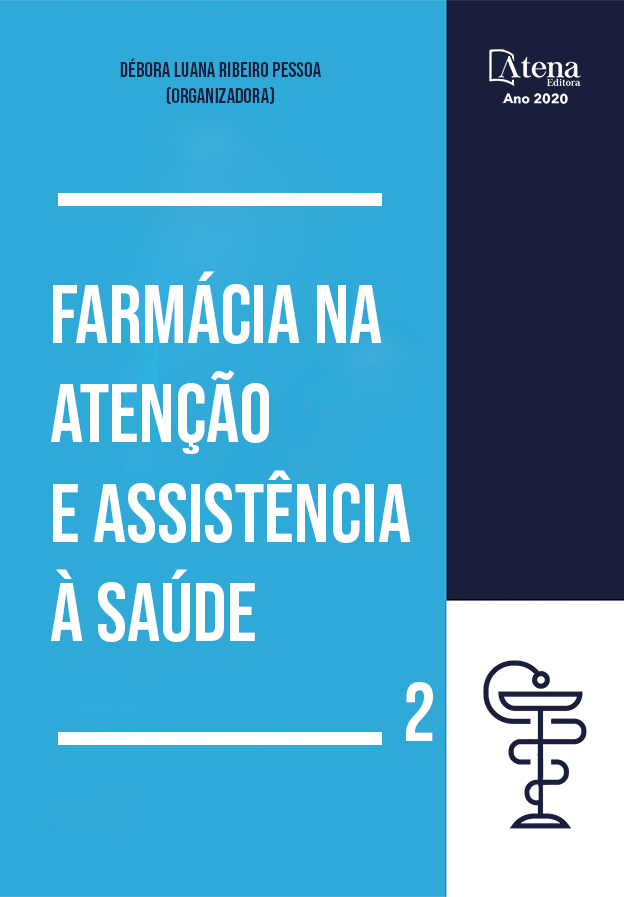
FLAVONÓIDES E SEUS EFEITOS ANTIDIABÉTICOS: REVISÃO DE LITERATURA
Introdução: Diversos estudos têm demonstrado várias atividades biológicas e farmacológicas dos flavonoides, compostos fitoquímicos que fazem parte do grupo dos polifenóis, responsáveis pela coloração das folhas e flores e presentes nas frutas e nos vegetais. Devido à relação entre o diabetes mellitus e a inflamação e o potencial dos flavonoides na proteção contra os radicais livres e outros compostos pró-oxidantes, espera-se que o consumo de flavonoides ou alimentos ricos em flavonoides podem reduzir o risco de desenvolvimento ou até contribuir no tratamento do diabetes mellitus. Objetivo: Investigar os possíveis efeitos dos flavonoides sobre o controle glicêmico em indivíduos diabéticos. Metodologia: Foi realizada uma pesquisa por artigos nas bases de dados Scielo, BVS, Bireme e PubMed. Também foram incluídas dissertações e teses. Para a pesquisa utilizaram-se os seguintes descritores: flavonoides, glicemia, antioxidantes, diabetes mellitus, compostos fitoquímicos. O período de publicação foi de 2011 a 2018. Resultados: As atividades antidiabéticas dos flavonoides estão possivelmente relacionadas com atividades hipoglicemiantes por meio da indução da secreção de insulina, pela regulação da captação de glicose pelo lúmen intestinal, em função da inibição da digestão e absorção de carboidratos através da inibição da α-glicosidase e/ou da produção hepática de glicose. Conclusão: Os resultados apresentados corroboram com a hipótese do presente estudo de que a ingestão de flavonoides pode contribuir para redução do risco de desenvolvimento e para o tratamento do diabetes mellitus.
FLAVONÓIDES E SEUS EFEITOS ANTIDIABÉTICOS: REVISÃO DE LITERATURA
-
DOI: 10.22533/at.ed.73720151217
-
Palavras-chave: Flavonoides. Glicemia. Antioxidantes. Diabetes mellitus. Compostos fitoquímicos.
-
Keywords: Flavonoids. Glucose. Antioxidants. Diabetes mellitus. Phytochemicals
-
Abstract:
Introduction: Several studies have demonstrated various biological and pharmacological activities of flavonoids, phytochemicals that are part of the group of polyphenols, responsible for the coloring of leaves and flowers and present in fruits and vegetables. Due to the relationship between diabetes mellitus and inflammation and the potential of flavonoids to protect against free radicals and other pro-oxidant compounds, it is expected that consumption of flavonoids or foods rich in flavonoids may reduce the risk of development or even contribute in the treatment of diabetes mellitus. Objective: To investigate the possible effects of flavonoids on glycemic control in diabetic individuals. Methodology: A search for articles was carried out in the Scielo, BVS, Bireme and PubMed databases. Dissertations and theses were also included. The following descriptors were used for the research: flavonoids, glycemia, antioxidants, diabetes mellitus, phytochemicals. The publication period was from 2011 to 2018. Results: Flavonoid antidiabetic activities are possibly related to hypoglycemic activities through the induction of insulin secretion, by the regulation of glucose uptake by the intestinal lumen, due to the inhibition of digestion and absorption of carbohydrates through the inhibition of α-glycosidase and / or hepatic glucose production. Conclusion: The results presented corroborate the hypothesis of the present study that the ingestion of flavonoids can contribute to reduce the risk of development and to treat diabetes mellitus.
-
Número de páginas: 9
- Priscilla de Oliveira Mendonça Freitas
- Diego Silva Melo
- Ana Camila Osterno Nóbrega
- Lucas Barbosa Xavier
- Orquidéia de Castro Uchôa Moura
- Andreson Charles de Freitas Silva
- Ana Thaís Alves Lima
- Alícia Freitas de Sousa
- Camila Pinheiro Pereira
- Alane Nogueira Bezerra
- Valéria Silva de Lima
- Débora Mendes Rodrigues


